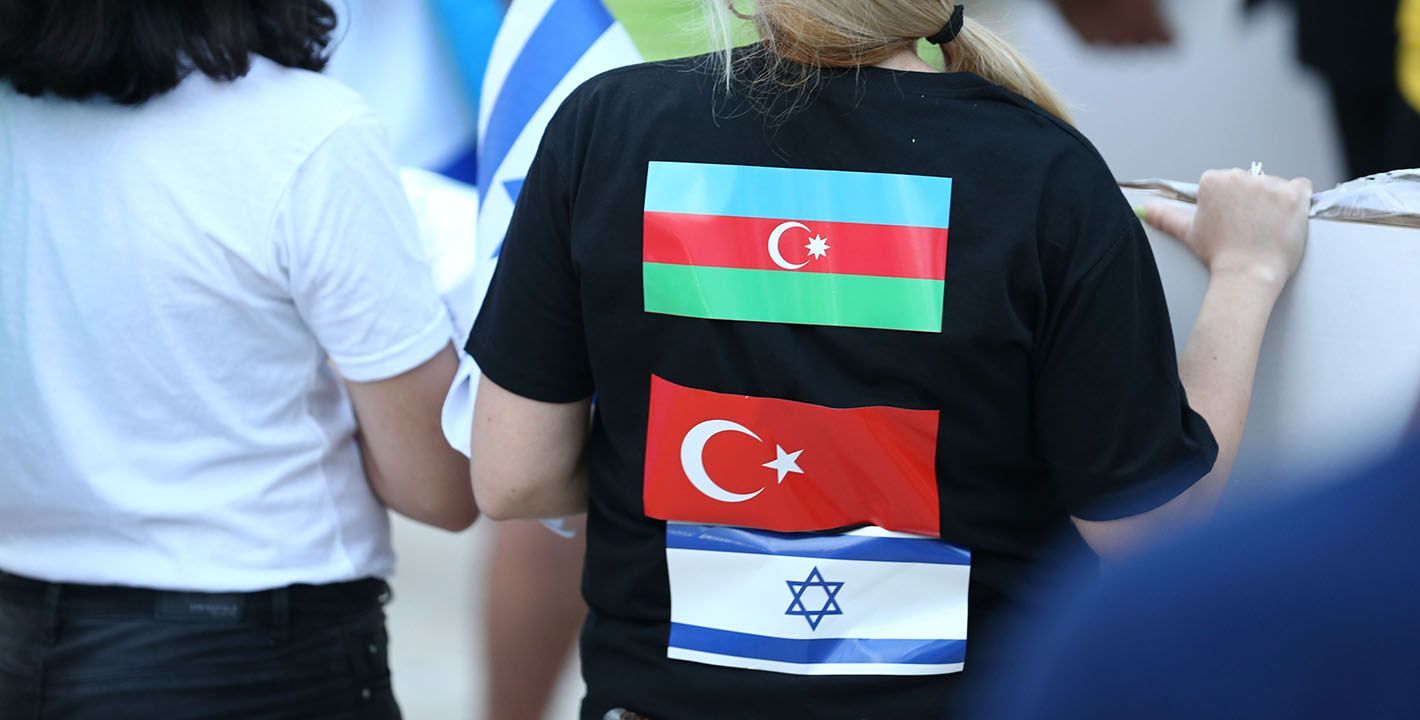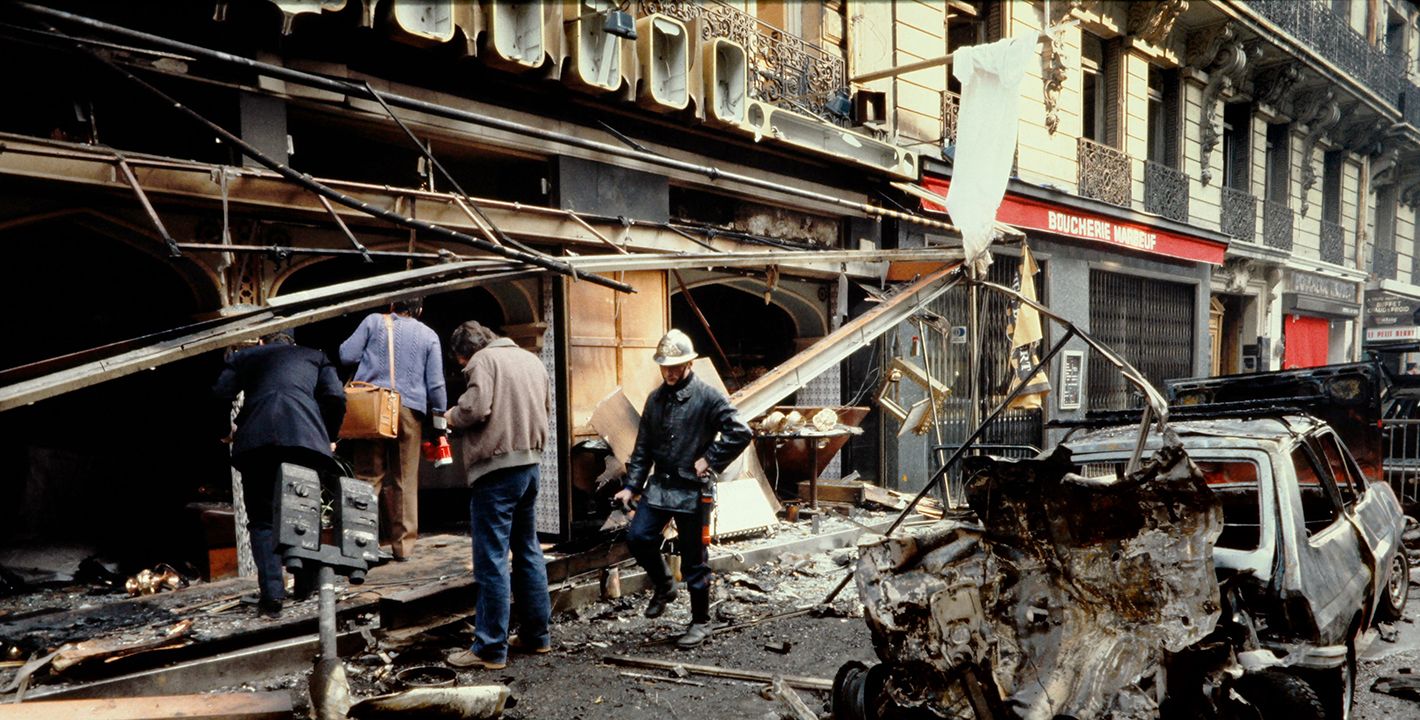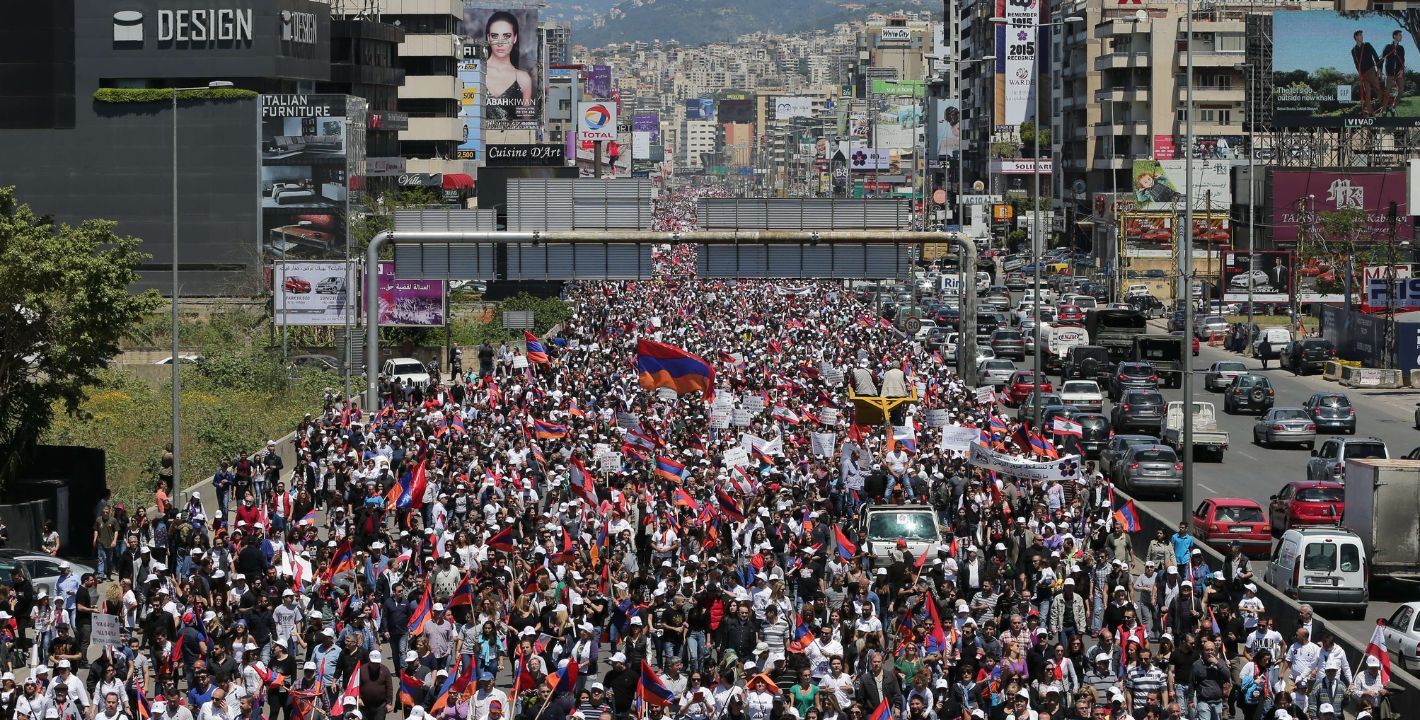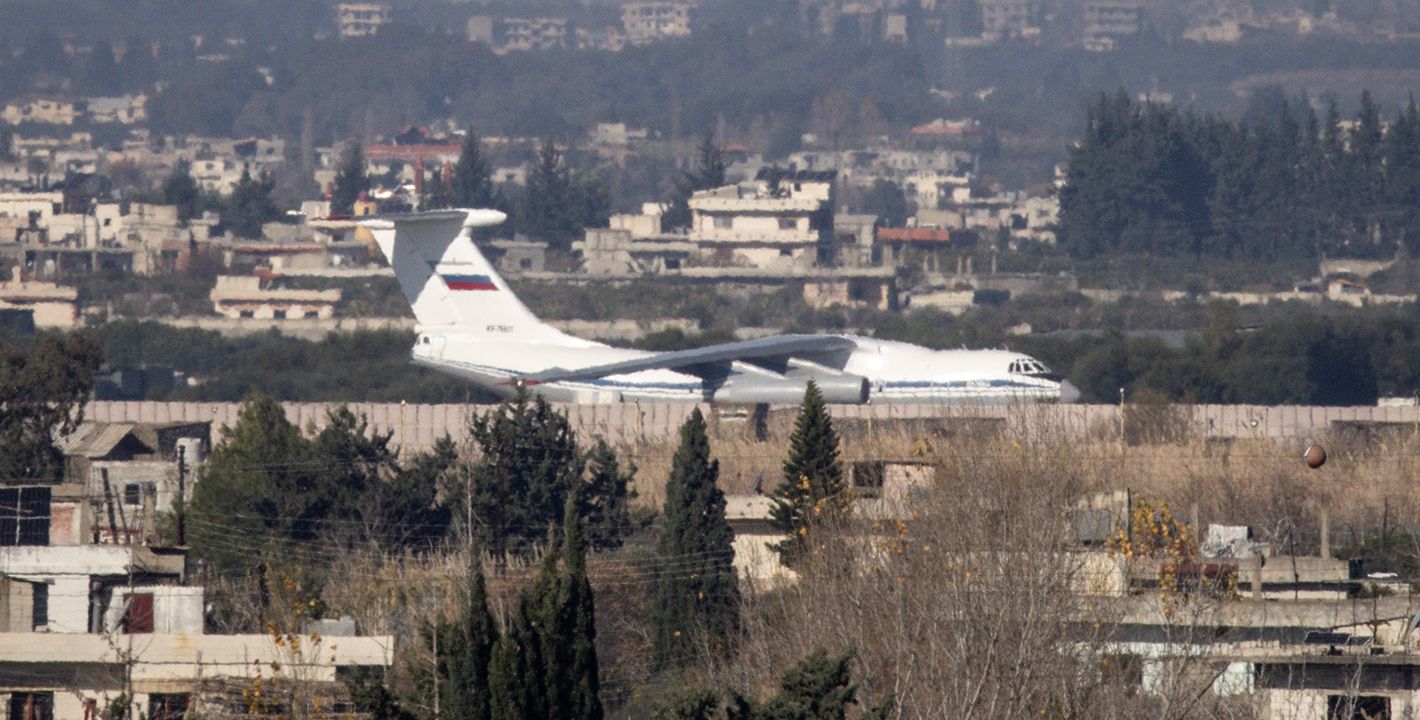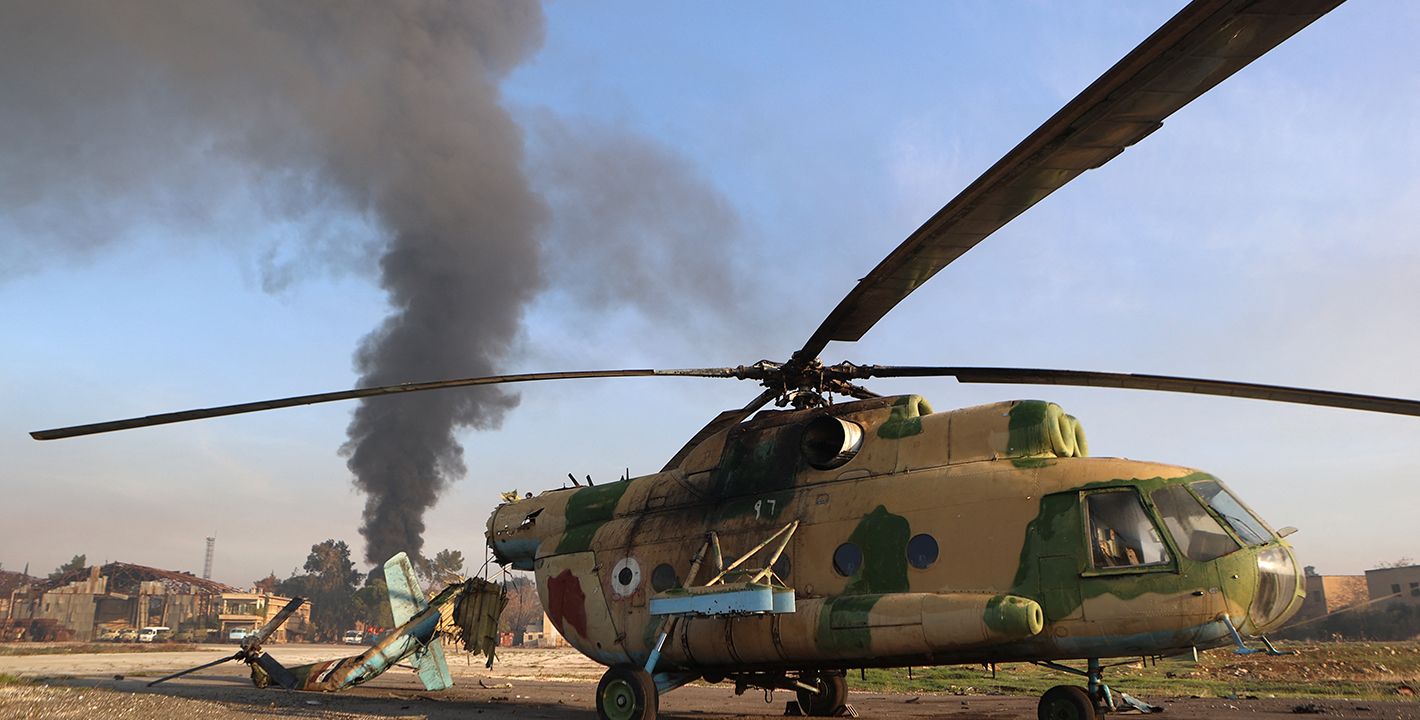Michael Young
{
"authors": [
"Michael Young"
],
"type": "commentary",
"blog": "Diwan",
"centerAffiliationAll": "dc",
"centers": [
"Carnegie Endowment for International Peace",
"Malcolm H. Kerr Carnegie Middle East Center"
],
"collections": [],
"englishNewsletterAll": "menaTransitions",
"nonEnglishNewsletterAll": "",
"primaryCenter": "Malcolm H. Kerr Carnegie Middle East Center",
"programAffiliation": "MEP",
"programs": [
"Middle East"
],
"projects": [],
"regions": [
"Caucasus",
"Azerbaijan",
"Armenia",
"Russia"
],
"topics": []
}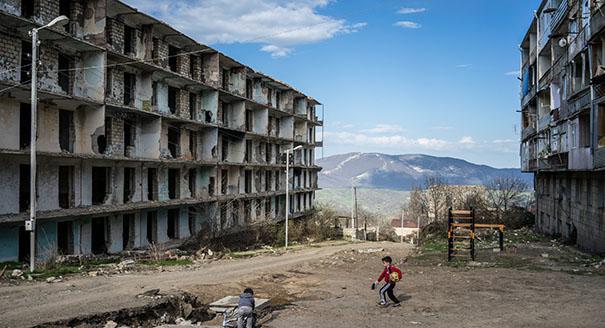
Source: Getty
Playing Great Games in the South Caucasus
In an interview, Alexander Gabuev discusses the Nagorno-Karabakh conflict and identifies winners and losers.
Alexander Gabuev is a senior fellow and the chair of the program on Russia in the Asia-Pacific at the Carnegie Moscow Center. His research is focused on Russia’s policy toward East and Southeast Asia, political and ideological trends in China, and China’s relations with its neighbors—especially those in Central Asia. Recently, he participated in a Carnegie podcast with Sinan Ülgen and Thomas de Waal, both of them scholars at Carnegie Europe, on the situation in Nagorno-Karabakh. Diwan interviewed Gabuev to get his perspective on the conflict, in particular Russia’s role and its relations with Turkey, which has played an essential role in supporting Azerbaijan in the conflict.
Michael Young: How did Russian officials interpret the conflict in Nagorno-Karabakh?
Alexander Gabuev: For quite some time Moscow believed that the “frozen” conflict in Nagorno-Karabakh would resume. A string of escalations in recent years, most notably the so-called Four-Day War in April 2016, was an indication of what was likely to come. Given the growing gap in military capabilities between the parties, and the lack of diplomatic progress, the temptation to use force was growing on the Azeri side. At the same time, the Kremlin wasn’t happy with the way Armenian Prime Minister Nikol Pashinyan, who came to power in 2018 following a democratic revolution, handled the Karabakh issue and relations with Baku. In Moscow’s view, Pashinyan was a political activist with no military experience, and that’s why he took a deliberately tough stance on Karabakh to boost his image at home. With no diplomatic solutions in sight and no functioning dialogue with the Armenian side, the pressure of the “war party” in Azerbaijan started to mount.
Russia’s leadership is also not blind to the growing role of Turkey and its ambition to gain influence over Azerbaijan, including through its help in reclaiming Nagorno-Karabakh. For some sober observers in Moscow, a new military conflict was not a question of if, but when.
The timing of the Azeri offensive was largely explained by the fallout of the Covid-19 pandemic. The collapse of oil prices and mounting problems at home put pressure on Azerbaijani President Ilham Aliyev’s regime, which could be potentially eased through a successful military adventure in Karabakh. The same tactical logic, informed by a grand strategy to restore Turkey’s influence in the South Caucasus, drove Turkish President Recep Tayyip Erdoğan. With the U.S. focused on its elections and Russia distracted by the fallout of Covid-19 at home and the crisis in Belarus abroad, the end of September became a perfect deadline for Baku and its supporters in Ankara to begin their offensive to retake Nagorno-Karabakh.
MY: How has Turkish encouragement that Azerbaijan go on the offensive affected Ankara’s ties with Russia?
AG: Moscow is aware of Turkey’s key role as the architect of Azerbaijan’s military gains in Karabakh, and Russian intelligence has even leaked some of its evidence of Turkish involvement to the Kommersant newspaper. Turkey’s growing ambitions in the South Caucasus and broader post-Soviet space, including Central Asia, comes as no surprise to the Kremlin. However, the boldness of Turkish actions and readiness to provide substantial support and guidance to Azerbaijan’s troops caught Moscow off guard.
Going forward, Russia’s leadership sees that growing Turkish influence in the South Caucasus is inevitable. The power vacuum created by the dissolution of the Soviet Union and the gradual estrangement of all three former republics—Azerbaijan, Armenia, and Georgia—from Russia has lured other players into this strategic region. Moscow was not so naïve as to assume that its influence would remain unchallenged indefinitely. This is why Turkey’s inroads are seen as a necessary evil that can be managed for as long as Russia has its own toolkit for the region handy, Moscow maintains channels of strategic dialogue with Ankara, and the Turkish presence is balanced by the efforts of other regional and global players, including Iran, the West, and in the future global China.
Since Russia wants to be a player in the broader Middle East and North Africa region, a good relationship with Ankara is essential for Moscow in order to achieve its goals. While not fully aligning with any of the local players, who have much more skin in the game, Russia is trying to create a careful balance among its various relationships in the region, and leverage these to achieve its goals. Moscow is clear-eyed that its interests don’t coincide with those of Ankara all the time, and there is competition and even a struggle. However, an ability to compartmentalize cooperation and competition with Turkey is a must for Russia to maintain its presence in the region.
This time Moscow was able to check Ankara’s role in the final settlement of the war. The diplomacy between Erdoğan and Russian President Vladimir Putin has played an important role, and Turkey has boosted its image as a powerful player in the South Caucasus that was able to devise a military victory for its partner Azerbaijan. At the same time the Kremlin made sure that the peace agreement was brokered and signed with an exclusive Russian role, and with no official Turkish participation.
What’s even more important, the fragile peace in Nagorno-Karabakh will be secured by 1,950 Russian peacekeepers with no Turkish boots on the ground. Turkey will only send unarmed observers to staff a joint Russian-Turkish center in Azerbaijan that will monitor implementation of the deal. Finally, as part of the agreement, Russia will help to build a road from Azerbaijan to its Nakhchivan exclave, which it will operate and patrol exclusively.
MY: What main takeaways do you have from the Nagorno-Karabakh conflict? Who are the winners and the losers?
AG: The key takeaway so far is that “frozen” conflicts might be “unfrozen” someday, and at that point many players will be caught off guard. One of the drivers here is the aftereffects of such major tectonic shifts as the Covid-19 pandemic, the global financial crisis of 2008, or the accumulated effects of processes such as climate change. These events are happening in parallel with intensifying competition among states seeking to instrumentalize conflicts in order to gain more regional or global influence. And then there are always domestic dynamics in various states. All of these factors can be sources of new and bitter conflicts and generate new negative ripple effects.
Azerbaijan is a clear winner of this war. Ilham Aliyev managed to retake Azeri regions around Nagorno-Karabakh that had been occupied by Armenia in 1994. Moreover, Baku sized a large part of Karabakh itself. The return of Shusha (Shushi in Armenian), a city of particular cultural significance for Azerbaijan as well as strategic significance, sealed the military victory. However, the full recapture of Nagorno-Karabakh would come with a heavy price in lives. The likely exodus of the territory’s Armenian population would trigger much criticism in the West. The current outcome allows Aliyev to maintain his major military gains, avoid criticism and the attention of the international community for having resumed the war, and preserves Azerbaijan’s good ties with Turkey and Russia.
Then there is Turkey, which clearly has boosted its role and has received a more formal presence in the conflict-resolution mechanism through its observation mission. Russia could also be counted as a winner. Facing a situation with no good options, Moscow managed to turn the tables and broker a peace deal that checks all the major boxes as far as Russian interests are concerned. Moscow has helped to prevent a full military defeat for Nagorno-Karabakh, and likely additional human suffering. Then there is the Kremlin’s exclusive role in the peace agreement, with no other co-chairs of the Organization for Security and Cooperation in Europe’s Minsk Group—the United States and France—or Turkey in the picture. There is also the Russian peacekeeping mission, which Moscow has wanted since 1994. And, finally, Moscow retained good ties with Azerbaijan, managed its relationship with Turkey, and kept its alliance with Armenia, which is likely to become even more dependent on Russia.
Armenia is a clear loser, and, given the asymmetry of military capabilities between Baku and Yerevan, it’s impossible to imagine a return to the prewar status quo. Facing a high level of anger at home with the outcome of the conflict, Nikol Pashinyan’s government is on the brink of collapse. The West can be placed in the loser’s column too. The United States, France, and other Western powers have been notably absent from the outcome of the conflict, and their diplomatic efforts to bring peace, or at least a ceasefire, have failed miserably.
MY: The conflict in Nagorno-Karabakh comes at a time when Russia appears to be bogged down in Syria, with no political horizon to bring the conflict there to an end. Would it be correct to say that both conflicts show the limits of Russian power in the broader Caucasus-Middle East region?
AG: Russia’s power clearly has its limits in the region, as does the power of the United States, which scores much higher on all metrics of comprehensive national power. In the Middle East, Russia organized a comeback and inserted itself as one of the important, if not indispensable, players in the region. In the South Caucasus it is still one of the key players, if not the strongest player. However, it clearly has no control over developments, and its influence will gradually wane from a position of former colonial metropolis to one of a powerful neighbor. In the Middle East, the Kremlin’s toolkit is much smaller, and the key question for Moscow in the medium and long term is how much of Russia’s investment in the region addresses the country’s key interests, such as its security or economic development, beyond prestige considerations? And are there other and cheaper means to protect those interests?
MY: Where do we go from here in the Nagorno-Karabakh conflict?
AG: The end of war is positive news. However, that doesn’t mean peace. The situation on the ground is still very fragile, and despite the swift arrival of Russian peacekeepers, some key aspects of the deal, including the withdrawal of Armenian troops from Nagorno-Karabakh, have yet to be implemented. The time bomb in the agreement sealed by Moscow on November 10 is that this document doesn’t mention the future status of Nagorno-Karabakh. In five years, Baku will have legal reasons to ask for a withdrawal of Russian peacekeeping troops from its territory, and will be able to regain full control of Karabakh by military force.
If this happens, it will present an unpleasant dilemma for the Kremlin. A Russian withdrawal will mean a likely Azeri onslaught, while if the Russians stay, this will cause damage in their ties with Azerbaijan, and lead to much international criticism. That is why Russia is likely to use this narrow window of opportunity to push for a diplomatic resolution. For now it seems to be mission impossible. Having gained significant leverage on the battlefield, Baku has improved its negotiating position and is unlikely to accept much autonomy for Nagorno-Karabakh. At the same time, Armenian society, even after the initial emotional shock is gone, is unlikely to become more flexible and faces a grim reality. With Russia’s ties with the United States broken, it’s hard to imagine that international diplomatic efforts to find a compromise will be forthcoming. This leaves the region in a very precarious state, with multiple risks ahead.
About the Author

Editor, Diwan, Senior Editor, Malcolm H. Kerr Carnegie Middle East Center
Michael Young is the editor of Diwan and a senior editor at the Malcolm H. Kerr Carnegie Middle East Center.
- Axis of Resistance or Suicide?Commentary
- Iran and the New Geopolitical MomentCommentary
Michael Young
Recent Work
Carnegie does not take institutional positions on public policy issues; the views represented herein are those of the author(s) and do not necessarily reflect the views of Carnegie, its staff, or its trustees.
More Work from Diwan
- Iran’s Woes Aren’t Only DomesticCommentary
The country’s leadership is increasingly uneasy about multiple challenges from the Levant to the South Caucasus.
Armenak Tokmajyan
- From Prague With a ShoveCommentary
In an interview, Daniela Richterova speaks about her book on Czechoslovakia’s Cold War ties to Palestinian groups and others.
Michael Young
- Don’t Underestimate Lebanon’s ArmeniansCommentary
The community’s contributions to Armenia should encourage greater assistance from Yerevan.
Araz Bedross, Karni Keushgerian
- The Syria Fiasco As Seen From MoscowCommentary
The downfall of the Assad regime represented a setback, but Russia’s primary focus remains Ukraine.
Sergei Melkonian
- Anatomy of a Military FallCommentary
Why did Bashar al-Assad’s armed forces fail to act, unlike those in Egypt, Libya, Algeria, and Sudan?
Yezid Sayigh

